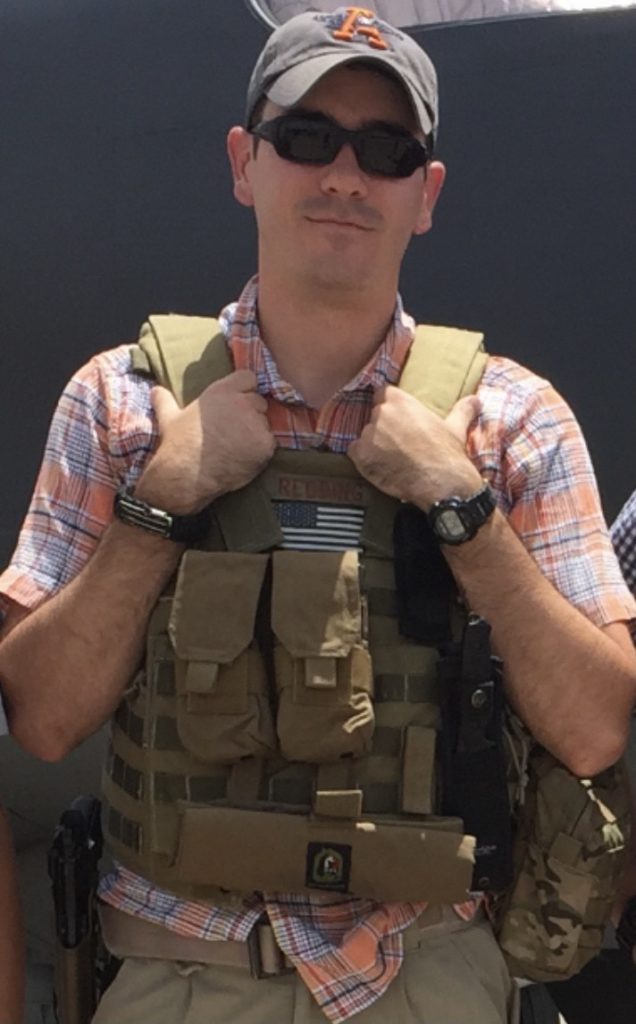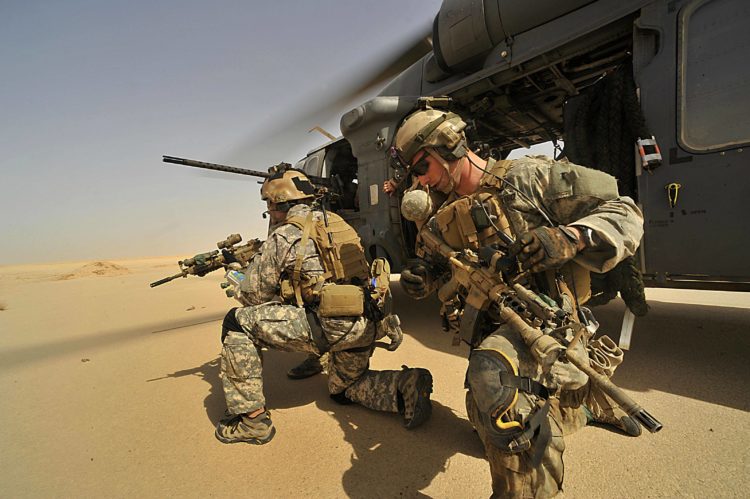Because SOF was so close to the problem, it failed to see it. This phenomenon is called ethical drift. Small insidious deviations, over time, become a large departure from the original direction of the organization. What’s more, the individuals making these deviations may not even recognize that this is happening. One seemingly insignificant shortcut leads to another and another. And eventually, the picture of what was normal isn’t even in sight. It’s been totally left behind. But this doesn’t happen by itself.
Let’s go back to the discussion on mission and resources.
When faced with competition for resources, ethical drift can occur. When people feel they are playing a zero-sum game, ethical drift can occur. When people see no other way out, ethical drift can occur. We lost our sense for safeguarding people because SOF was so preoccupied with meeting the demands of the mission, no matter the actual capacity to do so. The scale was so far tipped toward the side of risk that unethical behavior was bound to happen. So, if we set all of the conditions for catastrophe, why didn’t we see it coming?
Success Has its Own Problems
SOF was too caught up in its own success. It became the easy button for solving the world’s problems and as its commitments rose so did its ego. The SOF multi-tool became the center of public attention. SOF bought into the sensationalized image of special operations and lost its compass as quiet professionals. With every raid, strike, and special mission the thirst for the mission became insatiable. SOF began chasing the metrics over the underlying values that had been its guiding principles. The problem with good results is, it’s hard to convince the masses that there is a problem. This perception of institutional well-being masks the indicators showing a departure from normal because the gratification of getting to yes and improving the metrics is steadily reinforcing the drift. To an outsider, the outpacing of SOF’s mission from its resources would have been obvious. The insufficient investment in training enterprises would have raised questions about standards and evaluations. The disruptive force generation model would have highlighted an unsustainable operations tempo. The absence of leaders in garrison would have correlated with lapses in SOF professionalism and accountability. The growing risk to SOF would have been obvious. The ethical drift could have been prevented.
The real reason SOF couldn’t see it is because it didn’t want to. Below its outward expression of technical competence in special operations, SOF has a need to prove that it can get the mission done at any cost. To retain its credibility with joint, coalition, and agency partners, SOF felt compelled to “get to yes” where others couldn’t. The SOCOM Comprehensive Review published in January 2020 labeled SOF as a force too occupied with employment to effectively foster a professional force. To live up to the SOF multi-tool reputation, we were willing to compromise the deliberate development of our people. To embody the Hollywood image, we were willing to inoculate risk tolerance to a level that put our people in a continual state of danger. To maintain a unique position at the forefront of attention and employment, we surged resources to and beyond capacity creating an environment of unceasing operations. To bolster our newfound popularity, SOF drifted away from its parent services to show that it was “special.”
How Organizations Change

For an organization to rapidly change it must face a crisis. For SOF, the ethics review must be that catalyst for a new way of doing business. SOCOM has shown a willingness to change by publishing the ethics review but we must be willing to implement it and show the American people that we accept the blame for drifting from the quiet professional mantra.
We must make meaningful change personal for each of our people, regardless of service. To gain back the trust of the American public, SOF cannot tolerate another ethical violation. This change requires a fundamental recalibration of its values system. Remember, SOF’s frame of reference is nearly unrecognizable from the point of departure 19 years ago. To regain its moral orientation, the daily assembly of the military uniform is used as a metaphor for the proper order of values. Every member’s values are seated on the principles of the Constitution, so the U.S. flag should be adorned on the shoulder first. Duty to service is embodied by the service patch, so the service name should be attached next. Commitment to integrity is represented by the oath of officers and enlisted, so military rank goes on the uniform next. Excellence to a military craft is shown in the component patch of SOCOM, so the component patch reaches the shoulder next. Finally, the last values SOF owes its allegiance to are the culture of its units and the members’ personal compass, represented when the unit patch and, lastly, nametape are seated. The unit and personal values come last inputting service to the Nation before self. As the late General Fogleman once noted, “We serve as guardians of America’s future. By its very nature, this responsibility requires us to place the needs of our service and our country before personal concerns.”
To become more lethal and capable, SOF must move closer to the joint force by placing the bastard brothers of the word “special,” elitism, egocentrism, and entitlement, outside of its values system. To change culture, you start with the top of the iceberg addressing the visible artifacts. SOCOM has made deliberate changes to its surface culture by policing its ranks for visible issues of discipline and professionalism leading to a decline in ethical malpractice since the ethics review was published. But it must dig further to address the deep cultural artifacts of insufficient leadership development, underinvestment in training, shallow accountability practices, overemployment beyond capacity, and disruptive force generation practices at the root of unethical behavior. In sum, SOCOM is in the throws of recalibrating its culture at this inflection point in its history, but its leaders must look into the mirror and embrace deep cultural change for its moral compass to be recentered.
The Path Ahead for SOF
SOCOM has only taken the first steps toward recalibrating its values but the first steps are the most difficult. People will resist change. They will call it a betrayal and unnecessary. They will call it risk-averse. But at the end of the day, SOF owes it to the Nation, and those privileged to serve honorably with the SOCOM patch on their shoulder, to get this right. Remember, the first response of an organization accused of ethical drift is to rationalize the behavior. But deep down, behind all of the competing needs to meet the SOF image and uphold its reputation, the core service values will guide SOF to the right path.
When the U.S. flag and service name are placed on the uniform, SOF should remember service before self. SOF has experienced the insidious reordering of its values over 19 years of war and this manifested itself the hard way: through poor judgment and disgrace. But SOF will find the frame of reference for its institution where it was left before 9/11. SOF will find its identity as quiet professionals again respected for their unquestioned discipline to its craft. SOCOM is committed to building capable leaders, fully equipped training units, and a sustainable ops tempo for its people. We must assume our place in supporting the joint force through strong relationships with our parent services. SOF will be soldiers, airmen, sailors, and marines first, with expertise in special operations.

This article was written by Major Mike Redding. Major Redding is a U-28A Pilot and Student at the Air Command and Staff College, Maxwell AFB Alabama.
Major Redding is a highly decorated and distinguished military pilot with more than 3,100 flight hours in various aircraft, including 1,800 combat hours and 500 instructor hours. His combat experience includes eight deployments supporting SOF teams in Afghanistan, Iraq, East Africa, and West Africa.
SOFREP publishes selected editorials submitted by our own readers. If we publish your editorial we will offer you a complimentary one-year SOFREP membership.
You can send us your submissions at [email protected]
– The Editors










COMMENTS